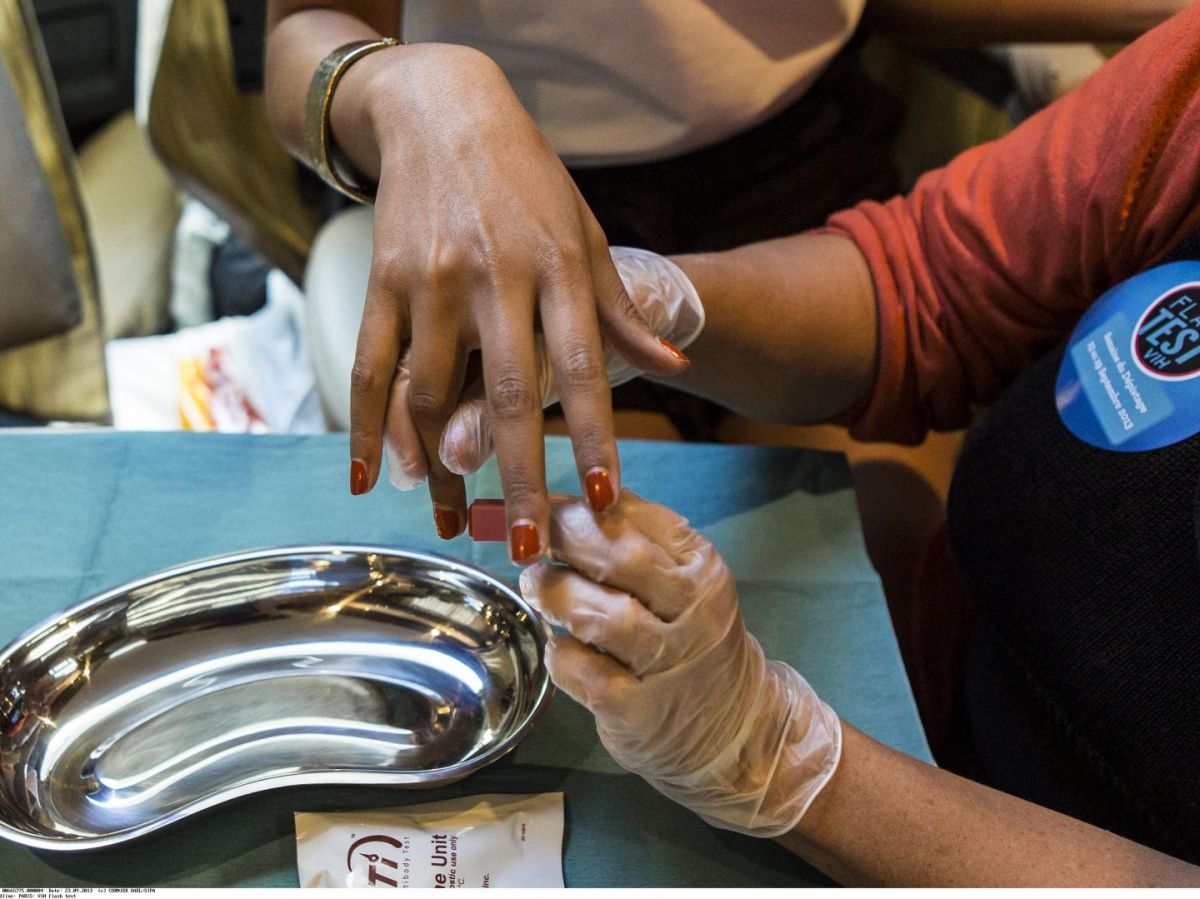An effectiveness of 100% in preventing infection, this is the impressive result obtained by a phase 3 clinical trial testing a new strategy of protection against the AIDS virus in Africa. A second study confirmed this considerable effect: " 99.9 % efficiency on intercontinental work”, adds the press release.
This is not a vaccine, but an antiviral, lenacapavir, which has been on the market for two years for patients already suffering from an infection resistant to other treatments. This last-line therapy was therefore tested as a means of prevention. With a major advantage over other HIV pre-exposure prophylaxis techniques, known as Prep: only one injection every six months was enough to protect the women included in the trial, compared to a daily oral tablet usually for Truvada and Descovy already used today. Above all, the level of protection was superior to these two drugs.
The success of this treatment is the result of recent progress in the knowledge of HIV and in particular its capsid, the envelope that protects the RNA of the virus. This is the target of lenacapavir. Today, it is called Breakthrough breakthrough of the Year by the magazine Scientists are able to explain the origins of science. Last year it was the "miracle molecule" GLP-1 that won this award. It was also the subject of a file in the monthly Science and Future.
A first study on more than 5,000 women not affected by HIV
On July 24th, the results of a clinical trial involving 8,100 participants aged 16 to 25 years in South Africa and Uganda. Of these, 5,338 were initially HIV-negative. They were divided into three groups: some women received subcutaneous lenacapavir every 26 weeks, while others received daily oral emtricitabine/tenofovir alafenamide (Descovy) and a third group received daily oral emtricitabine/tenofovir disoproxil fumarate (Truvada).
Read alsoAIDS: Researchers discover where HIV hides in infected cells
Results Of the 5,338 people who were initially HIV negative, 55 became infected during the study. There were 39 infections in the Descovy group (2,136 participants) and 16 in the Truvada group (1,068 participants). In contrast, no women treated with lenacapavir (2,134 people) became infected. HIV incidence with lenacapavir was significantly lower than baseline HIV incidence and HIV incidence with F/TDF (Truvada, editor's note)", the study emphasizes. In addition, the authors of this study do not note any safety problems concerning lenacapavir. Only frequent reactions at the injection site.
Targeting the capsid to freeze the virus
To fully understand how lenacapavir works, we need to look back at the structure of HIV. This spherical virus is surrounded by a lipid envelope. It has two strands of RNA, themselves protected by a protein layer called a "capsid". This genome allows it to proliferate: when a cell is infected, the RNA strands are released, converted into DNA, then read and finally translated into proteins that will form new viruses.
But the weak point of HIV actually lies in its shield, the capsid. In order to replicate, the virus depends on very specific enzymes: reverse transcriptase, integrase, and protease. And it is the capsid that contains and protects these essential tools. Lenacapavir blocks key steps in viral replication by stiffening the protein that makes up the capsid, » simplifies the press release.
Less stigmatizing care
The results of the trial were so conclusive that it was even stopped early to allow all participants to benefit from the injections. The presentation of the work published in the New England Journal of Medicine at the AIDS 2024 conference in Munich (Germany) at the end of July also earned South African researcher Linda-Gail Bekker a standing ovation. This treatment is all the more promising because it only requires two injections per year, compared to one daily tablet until now.
It remains to be seen how this drug will finally end up on the African continent. What logistics for production? What price? And when will it finally be accessible? So many questions that will have to be answered to see a real breakthrough in AIDS care. Regulatory approval is expected in 2025.
With Anne-Sophie Tassart and Hugo Jaliniere.
